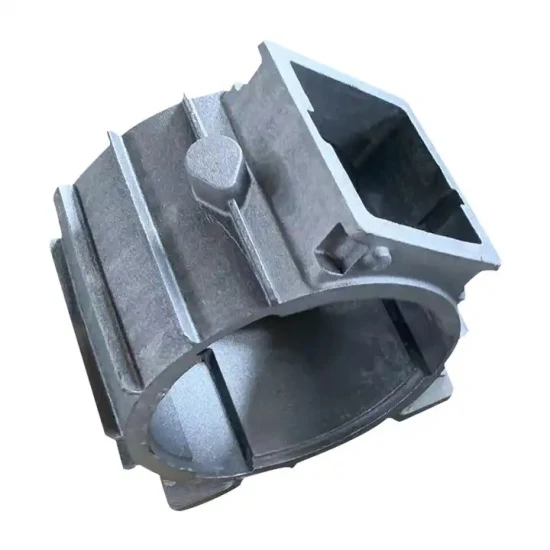Stahl Specialty Company Things To Know Before You Buy
Stahl Specialty Company Things To Know Before You Buy
Blog Article
All about Stahl Specialty Company
Table of ContentsStahl Specialty Company for DummiesWhat Does Stahl Specialty Company Do?How Stahl Specialty Company can Save You Time, Stress, and Money.The Of Stahl Specialty Company7 Simple Techniques For Stahl Specialty Company
Chemical Contrast of Cast Aluminum Alloys Silicon promotes castability by lowering the alloy's melting temperature level and enhancing fluidity throughout spreading. Additionally, silicon adds to the alloy's stamina and wear resistance, making it valuable in applications where durability is critical, such as auto parts and engine components.It also improves the machinability of the alloy, making it simpler to process right into finished items. This way, iron adds to the general workability of light weight aluminum alloys. Copper enhances electric conductivity, making it beneficial in electric applications. It additionally enhances deterioration resistance and contributes to the alloy's total strength.
Manganese adds to the stamina of aluminum alloys and improves workability. Magnesium is a light-weight component that supplies toughness and influence resistance to aluminum alloys.
It permits the manufacturing of lightweight parts with exceptional mechanical residential or commercial properties. Zinc boosts the castability of light weight aluminum alloys and aids control the solidification procedure during spreading. It enhances the alloy's toughness and firmness. It is commonly found in applications where detailed shapes and great details are needed, such as decorative spreadings and certain vehicle components.
Stahl Specialty Company - Questions
Since aluminum-silicon alloys have excellent casting residential or commercial properties, high gas homes, straightforward processes, and excellent deterioration resistance, aluminum-silicon alloys are most generally utilized in the die-casting industry at home and abroad. At the same time, aluminum-silicon alloys are likewise fairly very early and extensively recognized alloys created and made use of in die-casting. After continual study and renovation, the majority of the current worldwide mainstream aluminum-silicon alloys have actually been completed and are nothing greater than A356, A360, A380, ADC12, B390, and A413.
The main thermal conductivity, tensile strength, return toughness, and prolongation differ. Select appropriate basic materials according to the performance of the target product created. Amongst the above alloys, A356 has the highest possible thermal conductivity, and A380 and ADC12 have the least expensive. The tensile limitation is the opposite. A360 has the very best yield strength and the highest elongation rate.

The 9-Second Trick For Stahl Specialty Company
In precision spreading, 6063 is appropriate for applications where detailed geometries and premium surface coatings are vital. Examples consist of telecommunication rooms, where the alloy's premium formability permits for sleek and cosmetically pleasing designs while keeping structural integrity. In a similar way, in the Illumination Solutions industry, precision-cast 6063 components produce elegant and efficient lighting components that need detailed shapes and excellent thermal efficiency.
(https://canvas.instructure.com/eportfolios/3389549/home/foundries-in-missouri-and-aluminum-metal-casting-crafting-precision-building-trust)
The A360 exhibits superior elongation, making it optimal for complicated and thin-walled components. In accuracy spreading applications, A360 is appropriate for industries such as Customer Electronics, Telecommunication, and Power Tools.

In accuracy casting, aluminum 413 radiates in the Customer Electronics and Power Equipment industries. It's generally utilized to craft complex parts like mobile phone housings, electronic camera bodies, and power tool coverings. Its precision is remarkable, with tight resistances as much as 0.01 mm, making certain perfect product setting up. This alloy's remarkable corrosion resistance makes it an exceptional selection for outside applications, making certain durable, resilient products in the pointed out markets.
The Basic Principles Of Stahl Specialty Company
Once you have made a decision that the light weight aluminum die casting process appropriates for your task, a critical following action is picking one of the most ideal alloy. The light weight aluminum alloy you choose will considerably impact both the casting procedure and the buildings of the end product. Due to this, you need to make your choice very carefully and take an informed technique.
Establishing the most suitable aluminum alloy for your application will suggest considering a vast range of qualities. The first classification addresses alloy features that affect the production process.
The alloy you select for die casting directly impacts several aspects of the casting procedure, like how very easy the alloy is to work with and if it is vulnerable to casting defects. Warm cracking, also called solidification fracturing, is a normal die casting flaw for light weight aluminum alloys that can result in inner or surface-level tears or cracks.
Stahl Specialty Company - Questions
Specific light weight aluminum alloys are more at risk to warm cracking than others, and your option must consider read here this. An additional common flaw located in the die spreading of light weight aluminum is pass away soldering, which is when the actors sticks to the die wall surfaces and makes ejection challenging. It can harm both the actors and the die, so you need to try to find alloys with high anti-soldering properties.
Deterioration resistance, which is already a significant characteristic of light weight aluminum, can vary considerably from alloy to alloy and is a necessary particular to think about relying on the environmental problems your item will be exposed to. Wear resistance is an additional residential property frequently sought in light weight aluminum items and can separate some alloys.
Report this page